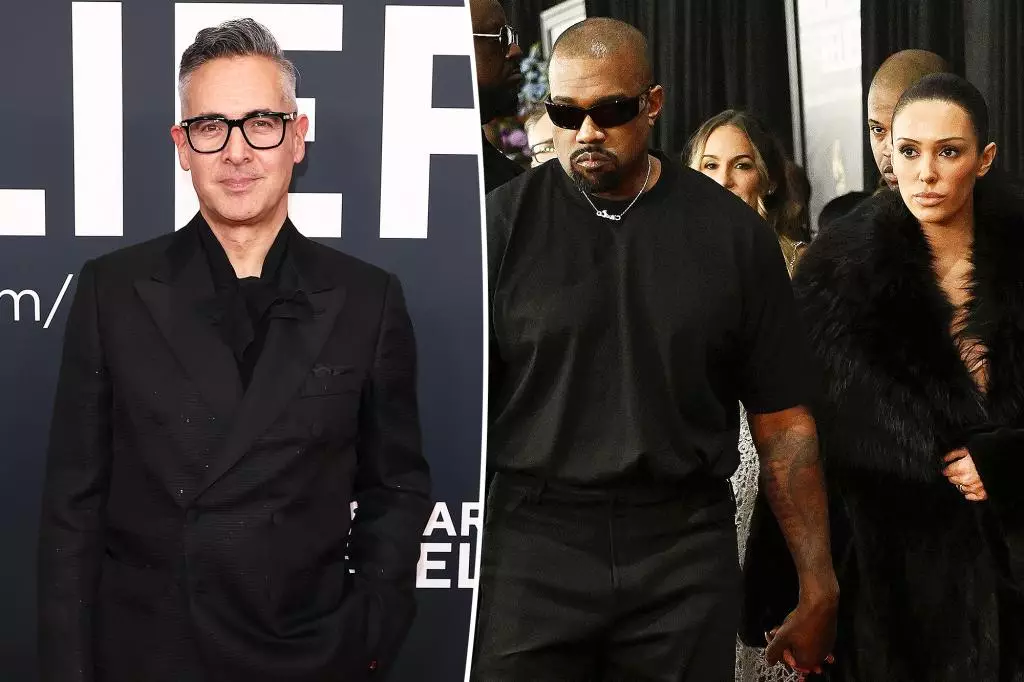The Grammy Awards, renowned for celebrating musical excellence, are equally infamous for their red carpet fashion observations and general attendee conduct. These high-profile events not only showcase artistic talent but also set societal standards about fashion and decorum. Recently, Raj Kapoor, the executive producer of the upcoming Grammys, raised eyebrows by discussing a lack of adherence to the appropriate dress code during the 2025 event. While the Grammy stage is meant for creativity and innovation, it appears that boundaries exist—boundaries that were clearly overstepped by Kanye West and Bianca Censori.
Kapoor articulated that artists who perform must uphold specific dress codes, reflective of the event’s reputation. In contrast, attendees—not engaged in the performance aspect—might experience greater leniency. This raises pertinent questions: Where do we draw the line between artistic expression and public propriety? For West, a nominated artist, and Censori, his controversial companion, their fashion choices at the Grammy gala demonstrated a blatant disregard for decorum that might have disappointed some attendees and fans alike.
Censori’s choice of attire—a sheer minidress seemingly composed of mere stockings—sent shockwaves across social media platforms and beyond. Stripping away traditional expectations, she surprised both the audience and organizers by opting for minimal coverage. While some observers championed her audacity, others were left astonished at what seemed like a deliberate attempt to attract attention, drawing focus away from an event primarily dedicated to musical achievements.
What was more alarming was the couple’s behavior leading up to their appearance. Reportedly, Censori was encouraged by West to evoke a spectacle, driven by an apparent desire to recreate the aesthetic of his “Vultures 1” album cover. While walking the carpet, she donned a black fur coat but removed it upon West’s suggestion, fueling the narrative of their intention to provoke. This interplay between the couple not only displayed theatricality, but also elucidated how they perceive red carpet appearances as opportunities for self-expression rather than opportunities to celebrate musical excellence.
Kanye West and Bianca Censori’s escapade is a reflection of the era we inhabit—a period where celebrity antics take precedence over traditional norms. It raises critical questions about the power dynamics of celebrity culture. While onlookers often critique these behaviors, hearts and minds connected to the entertainment industry seem to embrace them as valid forms of artistry. Censori’s minimalistic ensemble was not merely an outfit; it served as a potent visual statement that categorized her, alongside West, as individuals challenging societal norms around vestimentary codes.
The reaction from the public highlighted a split demeanor: some champions praised their bold approach as an embodiment of freedom and creativity, while detractors condemned it as lacking basic respect for the event’s nature. This divide is emblematic of broader societal challenges, where the quest for attention and originality sometimes eclipses a sense of responsibility that we expect, especially in public forum settings.
Despite the bewilderment generated, West and Censori opted to forgo attending the awards ceremony, retreating instead to a private after-party. This decision could imply that they found their red-carpet appearance sufficient fulfillment of their desire to make headlines, with the ceremony itself merely an afterthought. Observers are left to ponder: What message does this convey about their priorities, and what does it imply for the future of celebrity appearances?
In the immediate aftermath of their controversial display, sources indicated that Censori thrives on attention—good or bad—displaying a detachment from convention. The insatiable appetite for validation through shock remains a troubling trend in celebrity culture, and it compels us to question the sustainability of such approaches. As we continue to defend artistic expression, may we also seek balance as we navigate the complexities of a rapidly shifting entertainment landscape.
The events surrounding the 2025 Grammys speak volumes about the blurred lines between art and decorum. As we bear witness to such provocative displays, it becomes imperative to reflect on the messages we endorse and the standards we uphold in society.


Leave a Reply